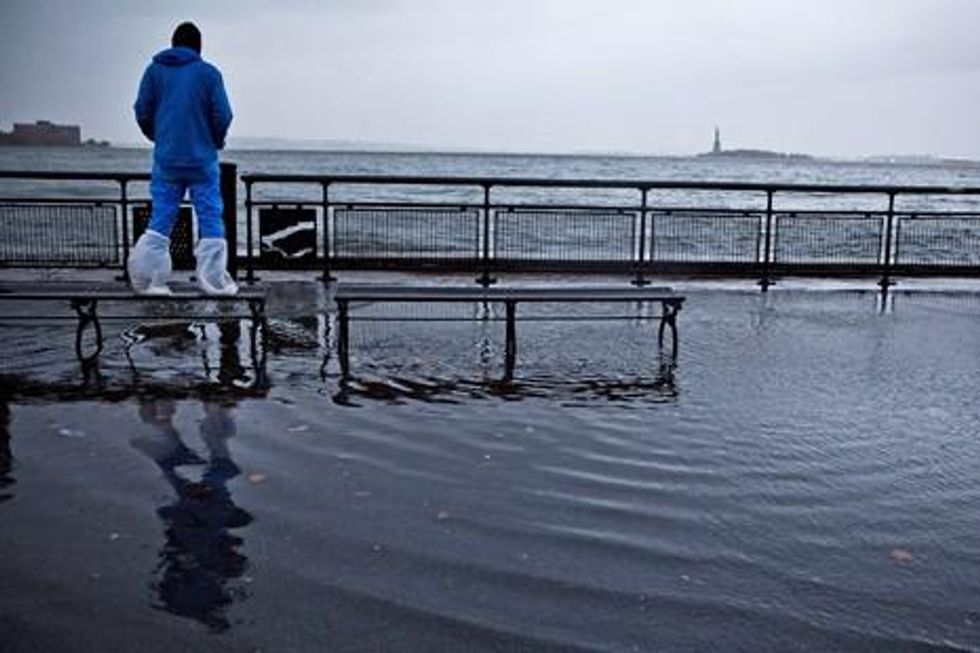A couple of weeks ago, Munich Re, one of the world's largest reinsurance firms, issued a study titled "Severe Weather in North America." According to the press release that accompanied the report, "Nowhere in the world is the rising number of natural catastrophes more evident than in North America." The number of what Munich Re refers to as "weather-related loss events," and what the rest of us would probably call weather-related disasters, has quintupled over the last three decades. While many factors have contributed to this trend, including an increase in the number of people living in flood-prone areas, the report identified global warming as one of the major culprits: "Climate change particularly affects formation of heat-waves, droughts, intense precipitation events, and in the long run most probably also tropical cyclone intensity."
Munich Re's report was aimed at the firm's clients--other insurance companies--and does not make compelling reading for a general audience. But its appearance just two weeks ahead of Hurricane Sandy seems to lend it a peculiarly grisly relevance. Sandy has been called a "superstorm," a "Frankenstorm," a "freakish and unprecedented monster," and possibly "unique in the annals of American weather history." It has already killed sixty-five people in the Caribbean, and, although it's too early to tell what its full impact will be as it churns up the East Coast, loss estimates are topping six billion dollars.
As with any particular "weather-related loss event," it's impossible to attribute Sandy to climate change. However, it is possible to say that the storm fits the general pattern in North America, and indeed around the world, toward more extreme weather, a pattern that, increasingly, can be attributed to climate change. Just a few weeks before the Munich Re report appeared, scientists at NASA's Goddard Institute for Space Studies, in New York, published a study in the Proceedings of the National Academy of Sciences on the apparent increase in extreme heat waves. Extreme summertime heat, which just a few decades ago affected much less than one per cent of the earth's surface, "now typically covers about 10% of the land area," the paper observed. "It follows that we can state, with a high degree of confidence, that extreme anomalies"--i.e., heat waves--"such as those in Texas and Oklahoma in 2011 and Moscow in 2010 were a consequence of global warming because their likelihood in the absence of global warming was exceedingly small." It is worth noting that one of several forces fuelling Sandy is much-higher-than-average sea-surface temperatures along the East Coast.
Coming as it is just a week before Election Day, Sandy makes the fact that climate change has been entirely ignored during this campaign seem all the more grotesque. In a year of record-breaking temperatures across the U.S., record drought conditions in the country's corn belt, and now a record storm affecting the nation's most populous cities, neither candidate found the issue to be worthy of discussion. Pressed about this finally the other day on MTV, President Obama called climate change a "critical issue" that he was "surprised" hadn't come up during any of the debates, a response that was at once completely accurate and totally disingenuous. (As one commentator pointed out, he might have brought up this "critical" issue on his own since "he is the friggin' POTUS.")
It is, at this point, impossible to say what it will take for American politics to catch up to the reality of North American climate change. More super-storms, more heat waves, more multi-billion-dollar "weather-related loss events"? The one thing that can be said is that, whether or not our elected officials choose to acknowledge the obvious, we can expect, "with a high degree of confidence," that all of these are coming.
